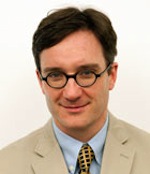Cheap, simple bacteria test could spare newborns deadly infections
For babies, the trip from the womb to the outside world is a transition from a blank, sterile slate to host for what will eventually be trillions of microscopic organisms.

Weibel
Unfortunately, the demographics of a burgeoning microbial community can easily tip in favor of dangerous bacteria.
“While that microbial environment in the gut is still developing, the introduction of one of many of the wrong kinds of bacteria may cause a severe immune response,” says Douglas Weibel, biochemistry professor at UW–Madison. “In an infant, the immune system could just ravage the intestines.”
In rural Africa, the risk following infection can be even greater. Weibel will use a Grand Challenges Explorations grant from the Bill & Melinda Gates Foundation to field a cheap and simple test for bacteria that cause necrotizing enterocolitis — a common and often deadly infection — in Kenya, Rwanda and Uganda.
“We get many of the beneficial microbes that take up residence in our bodies from our mothers at birth,” Weibel says. “But if there are pathogens that are transmitted from mother to baby as well, they can be identified and treated.”
Often, treating those pathogens can mean administering an antibiotic after the newborn develops relatively vague symptoms. Or, according to Weibel, a mother nearing labor will get the antibiotics in a preemptive dose — an approach that can result in the same problem it was meant to prevent.
“An approach like that can indiscriminately destroy almost all of the bacteria in a baby’s intestines — including the helpful types -leaving harmful bacteria the space and resources to flourish,” Weibel says. “And you’re back where you don’t want to be, working against a high mortality rate.”
A shift in approach by doctors and pathologists (or those with less training more likely to be present at a birth in developing countries) could improve the odds for children.
“It is extraordinarily simple. It doesn’t require someone that has a lot of clinical microbiology expertise.”
Douglas Weibel
Verifying the presence of harmful bacteria before or after birth can narrow antibiotic use to the newborns who absolutely need it. But verification can require the kind of complex and expensive genome sequencing equipment found most often near the lab benches of biochemists.
“Nate Cira, a really smart undergrad who worked in our lab, developed a small cartridge that we have adapted to carry almost everything needed to identify harmful microbes,” says Weibel, whose group configured the cartridge system while keeping the cost per unit below $1. “It is extraordinarily simple. It doesn’t require someone that has a lot of clinical microbiology expertise.”
Just add a sample from the mother or baby — or both, Weibel says — read results within 10 or 15 minutes, and plan care armed with the knowledge that harmful microbes are, or are not, poised to do damage.
Weibel also hopes to adapt the technology for use with a smartphone accessory that can heat and process a sample and share the results via a wireless connection.
“The beauty is that the data from that analysis can be sent up into the cloud to be shared with health care providers nearby and centers that monitor disease around the world,” Weibel says. “The doctor gets information on the specific organism that could cause very serious health problems for a baby, and disease centers can use it for epidemiological research.”
Weibel’s grant is one of 80 awarded during the ninth round of Grand Challenges Explorations funding. Each research team receives $100,000 to support one year of research, with the option of then submitting initial results that could win an additional $1 million to continue the work.
“Investments in innovative global health research are already paying off,” says Chris Wilson, director of the Global Health Discovery and Translational Sciences program at the Gates Foundation. “We continue to be impressed by the novelty and innovative spirit of Grand Challenges Explorations projects and are enthusiastic about this exciting research. These investments hold real potential to yield new solutions to improve the health of millions of people in the developing world, and ensure that everyone has the chance to live a healthy, productive life.”
The road from basic research to guiding health care in the field begins with Gates support. In December, Weibel will visit Uganda with fellow biochemistry professor James Ntambi, a group of UW–Madison students, and an eye to establishing partnerships to help him put his lab’s bacteria test cartridges to use.
“The development of the assay came from a very fundamental research project,” Weibel says. “Our lab is trying to take what we learn about basic microbiological systems and apply it in any useful way we can identify. That’s a focus the Gates Foundation will help us maintain.”
Grand Challenges Explorations is a $100 million initiative funded by the foundation. Launched in 2008, the grants have been awarded to nearly 500 researchers from more than 40 countries. The grant program is open to anyone from any discipline and from any organization; it uses an agile, accelerated process with short online applications and no requirement of preliminary data. Initial grants are awarded twice a year.
Tags: biosciences, health care, international, research




